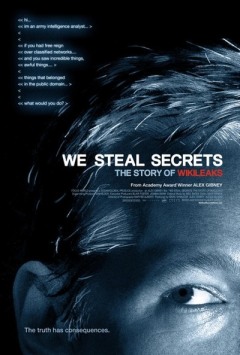 Firstly, Assange is not the second coming — not even in his own circles. His ‘hacker’ background is by no means unique, and was almost a common experience amongst ‘geeks’ who grew up during the late 80’s and early 90’s. Being investigated for, or even charged with, hacking / phreaking / fraud offences was as common amongst his peers as trailer trash being arrested for shoplifting, or simple assault. (Heck, if you were trailer trash with a modem you might have been charged with all of them!)
Firstly, Assange is not the second coming — not even in his own circles. His ‘hacker’ background is by no means unique, and was almost a common experience amongst ‘geeks’ who grew up during the late 80’s and early 90’s. Being investigated for, or even charged with, hacking / phreaking / fraud offences was as common amongst his peers as trailer trash being arrested for shoplifting, or simple assault. (Heck, if you were trailer trash with a modem you might have been charged with all of them!)
The information required to exploit various devices, systems and networks was freely available, if you knew where to look (or what number to dial), and the mechanics of doing so were often trivial. Let’s just get that out of the way, and accept that for the purposes of this review, Assange was, prior to Wikileaks, nothing extraordinary.
However, having the hutzpah to publish classified information when ‘everyone knows’ what would happen to you for doing so is really what differentiated Assange from the rest of the crowd — no one can or should dispute that. It’s surprising he hasn’t already had an ‘accident’, and he should be applauded for his evident vigilance in keeping himself alive. But, there are other documentaries that do that. What this particular documentary seemingly wants to explore is not whether what Assange did was exceptional (we already agree that it was), but whether how he elected to bring his ‘secrets’ to the world was done in the most appropriate, compassionate way.
‘We Steak Secrets’ recognises that, to some, this is important — even if many of Assange’s supporters think that it isn’t.
Bradley Manning is a tragic individual. Those who find themselves questioning their gender identity (often before pursuing gender reassignment) do not typically make the best choices. (This is why to proceed on such a path one usually needs to see a psychiatrist.) It is an incredibly confusing, frightening and yet euphoric time and I don’t generally advise people in such circumstances to make any decisions that could change their lives in any real degree while they mull over their future, since they’re not likely to be their best choices in retrospect.
Being transgendered may not itself be a ‘mental illness’, but the anxiety, depression and mania associated with coming to terms with being so certainly is, and one can’t be considered of ‘sound mind’ in such a state — this is an important point to make, and one the documentary attempts to impart through Manning’s IRC chats with the sad little man who would eventually turn him in.
Obviously, deciding to copy a large amount of classified data and deliver it to Wikileaks would qualify as a ‘poor decision’, especially when you’re in the US military, and have practically zero likelihood of defending your actions to your superiors. This is what the documentary suggests, and to do so is not slander — it merely tries to explain to the layperson why such a bright young man would choose to martyr himself in such a dramatic way when very few others (if anyone) would ever consider embarking on such an ambitious but dangerous course of action.
The documentary assumes that a completely rational individual in a similar scenario would never jeopardise his personal security in such a rash fashion irrespective of a perceived collective humanitarian benefit — which is not an unfair assumption to make — and asks what made Manning different; what could lead him to behave so contrary to that norm.
In doing so, ‘We Steal Secrets’ makes a decent hypothesis.
Moving on from Manning to Assange, the documentary then raises the question, “If Assange was aware of Manning’s personal difficulties, was he irresponsible in choosing to receive the classified information, and go ahead with publishing it, knowing what would result?” This is an ethical conundrum that is open for debate, but open for debate it most certainly is — regardless of whether Assange’s supporters like it or not.
Although Assange evidently concluded that releasing the information was of greater value to humanity than preserving the remainder of Bradley Manning’s productive life, others may not have felt similar. But go ahead Assange did, at full steam.
He made his choice, fair enough — but could Assange have redacted details that weren’t all that important to the context of the information, such as the names of informants? Could he have released statistics, or related overall ‘stories’ told by the data, rather than the data itself, to mitigate some of the consequence to Manning? Would Manning’s looming punishment have been reduced had the information been handled differently?
We can only speculate — but we are entitled to, make no mistake.
It’s not ‘unfair’ for the documentary to ask these questions, either. It’s also not ‘unfair’ to continue on and examine Assange’s exploitation of his subsequent ‘rock-star’ status — after all, it speaks to his motivations, and casts a shadow on his supposed altruism. However, although to me the documentary tells the unfortunate tale of a fame-seeker who took advantage of someone in the grip of reconciling a very difficult truth in order to further his own agenda, others could interpret it differently.
I’m not sure how, but I’m sure they could. Can you?
